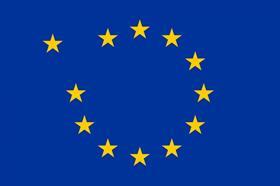
South African fruit sources are increasingly sceptical that Brexit will bring great advantages for their industry, despite initial optimism that in the UK at least they may be able to negotiate better deals.
Growers and exporters are now being warned that not much will change as far as trade and plant health rules are concerned, and that there should not be high expectations.
The South African citrus sector had initially hoped that the UK would adopt its own plant health regulations which would be more favourable than under the present European Union Plant Health regimes. This they had hoped would mean that the UK, because it does not have a citrus production sector, would not apply the citrus black spot (CBS) interventions they have been battling with over the past few years in the EU.
They had also hoped that the phasing out of the duty period after 1 October, which is provided for in the European Partnership Agreement (EPA) recently signed with Southern African countries, would happen much more quickly in Britain than the ten years provided for by the agreement. This would allow them to ship until the end of November duty free.
“We need to be realistic and expect that the UK will implement the EPA in its present form as it comes to terms with the huge task of phasing itself out of the EU,” said the Citrus Growers’ Association’s Justin Chadwick. “We have also been told that the present Plant Health Regulations of the EU will for now also be adopted by Britain.”
Some sources believed that after Britain exits the EU there is a very good chance of negotiating a trade pack within the Commonwealth, of which in terms of fresh fruit, South Africa is a very prominent member.
“Our trade minister has told us that he is not very confident about the Commonwealth becoming a big new trade vehicle,” noted Chadwick.
Some sources also believe that South Africa will have to tread carefully so as to not annoy the powers in Brussels by being too keen to negotiate new trade deals with the UK. They point out that South Africa has a huge amount of fruit trade with the EU and cannot afford to be too vocal in promoting bigger and more favourable trade deals with the UK.
It is also a fact that in comparison with Spain, for instance, South Africa’s fresh produce sales value in the UK is relatively small.
The trade in the UK, and the suppliers in Spain, will be equally committed to trying to maintain trade links as it is at present. Spain’s sales in fresh produce in the UK is reported to be €1.762 billion and the country has openly stated that it wants to see these links retained. Changes in trade and plant health regulations by the UK will not go down well in Spain.
At present most of the South African industries are keeping a low profile and are waiting for the South African trade department to lead the way. That is another reason why growers and exporters would do well not to expect any fireworks.



